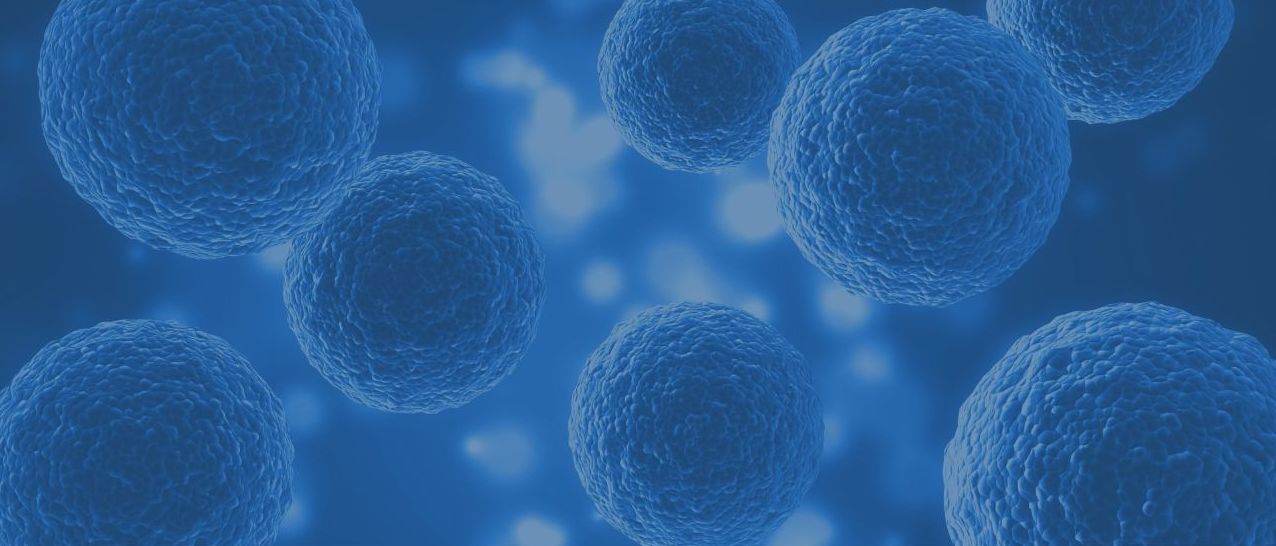Description
Nanomedicine represents a paradigm shift in healthcare, offering tailored and sophisticated diagnostic, imaging, and therapeutic solutions for unmet medical needs. This network unites an interdisciplinary team of 9 IBEC groups, fostering new collaborations to drive translational research with far-reaching societal implications. For this, 4 workshops will be held, covering basic and applied research: “Tools to study biological systems” will cover tools (imaging techniques, nanopatterned substrates, functionalized particles) to study biomechanics, cell behaviour, and signalling, relevant to understanding disease; “Selective targeting and biological barriers” will focus on ways to deliver therapies to otherwise inaccessible sites (BBB, lungs, biofilms); “Emerging nanotherapeutic modalities” will explore self-adaptive, stimuli-responsive, and immunomodulatory strategies; “Towards clinical translation” will address challenges and new models to bridge in vitro-to-in vivo and bench-to-clinic gaps. Talks and onsite discussions will ignite ideas, supported by a Teams channel to enable continued contact and lead to project proposals that will be pitched and evaluated in the final retreat.
NET-NANO counts on the participation of the following IBEC research groups:
- Bacterial Infections & Antimicrobial Therapies
- Bioinspired Interactive Materials and Protocellular Systems
- Cellular and Molecular Mechanobiology
- Molecular Bionics
- Nanobioengineering
- Nanoprobes & Nanoswitches
- Nanoscale bioelectrical characterization
- Smart Nano-Bio-Devices
- Targeted Therapeutics & Nanodevices
Contact us:
Iris Batalha: ibatalha@ibecbarcelona.eu
Network Members
Network Coordinator:
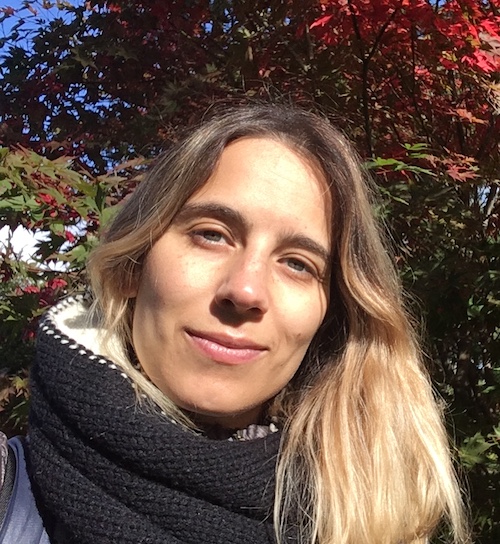
Iris Batalha
Senior Researcher
She works on developing nanomedicines that target cells through their metabolic phenotypes.
Network Representatives:
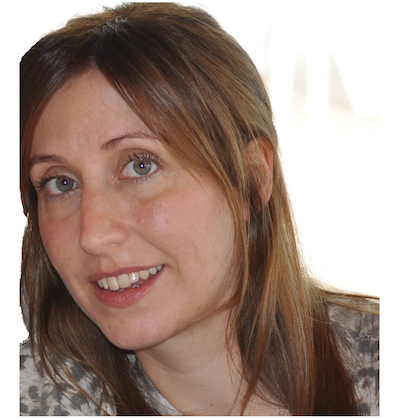
Anna Lagunas
CIBER-BBN Senior Researcher
She works on the interrogation of cells at the nanoscale to gather information on the spatio-temporal regulation of complex biological mechanisms.
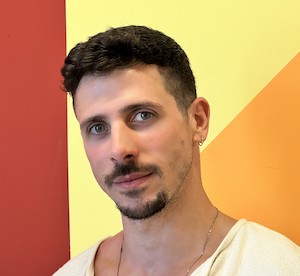
Juan Fraire
Senior Researcher
He works on exploring the synergy between nanocarriers, advanced light-triggered effects, and cutting-edge enzymatic nanomotors.
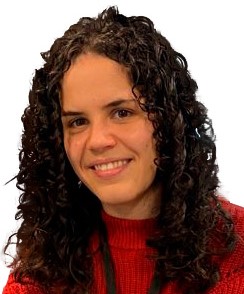
Núria Blanco-Cabra
Postdoctoral researcher
She works on innovative antibiofilm therapies, including the use of nanomedicine to target and cross bacterial biofilms.
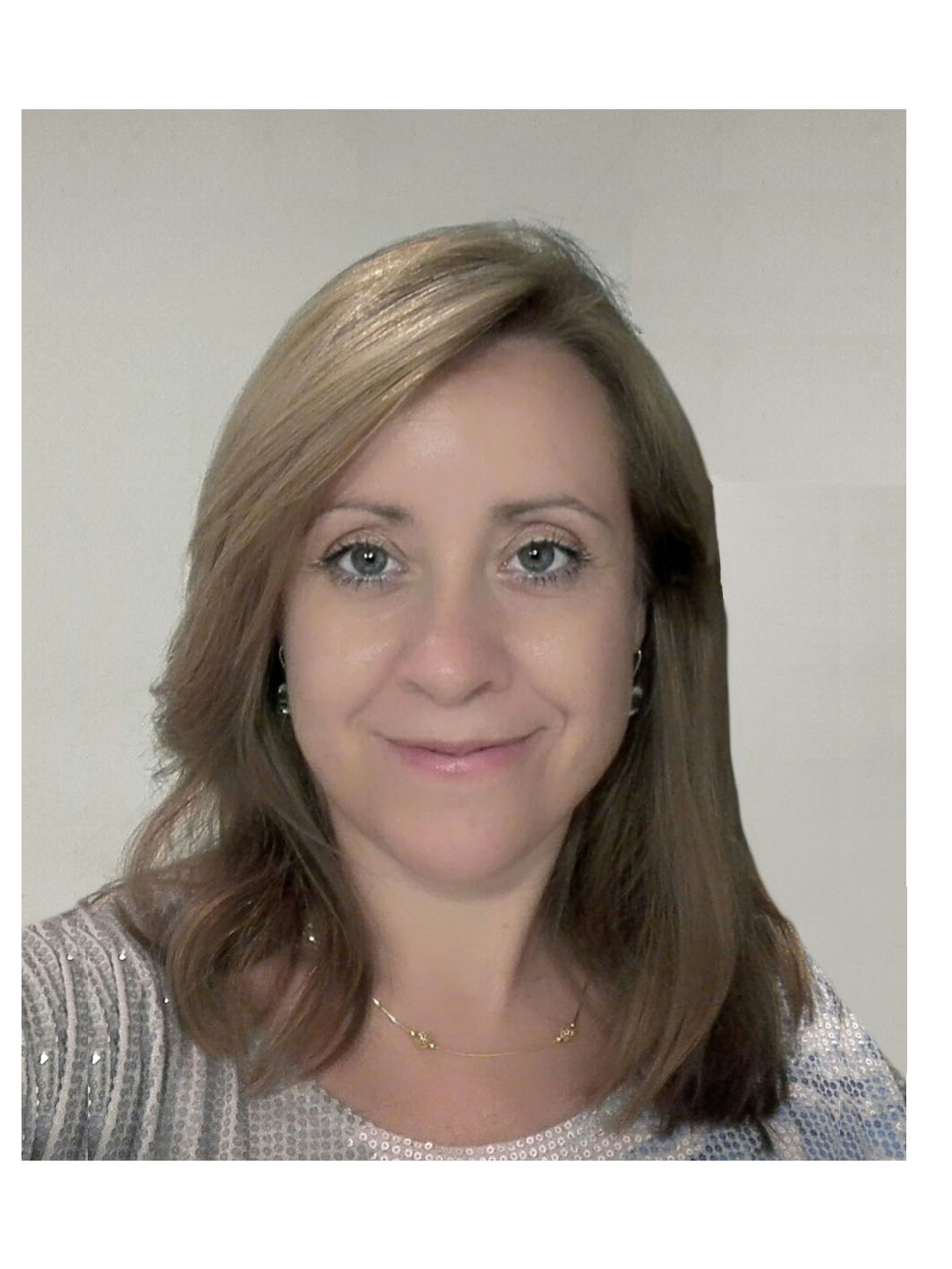
Silvia Muro
Group Leader
She works on the design of nanodevices for delivery of therapeutics to specific disease sites.
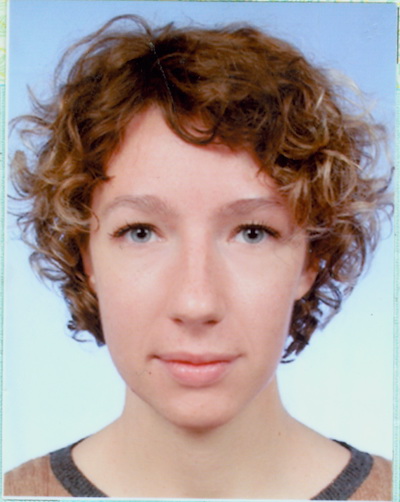
Galyna Malieieva
Senior researcher
She works on the development of new light-activatable nanoswitches for the control of neuronal activity with nanoscale precision for brain circuits studies and innovative neurotherapeutic strategies.
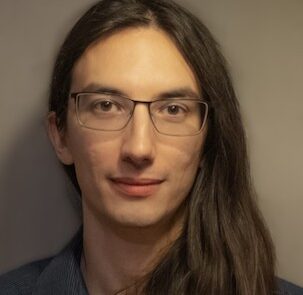
Adriano Caliari
Postdoctoral Researcher
He works on the introduction of specific receptors on xenobiotic membranes to trigger artificial phagocytosis.
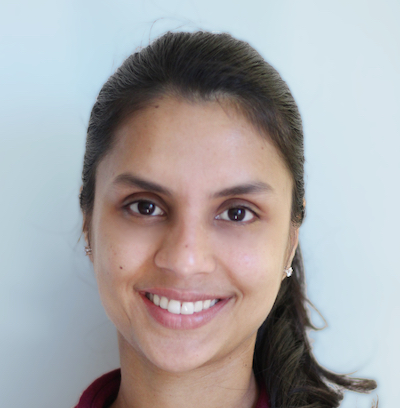
Mamatha Nijaguna
Postdoctoral Researcher
She works on the identification of mechanoinhibitors with potential therapeutic applications.
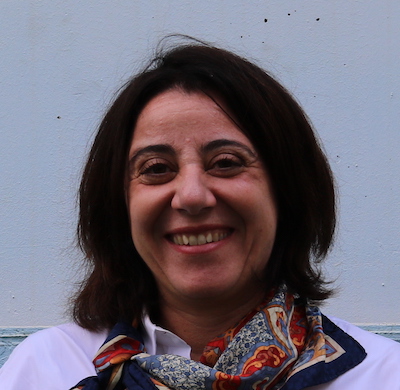
Annalisa Calò
Senior Researcher
She works on the transformations and nanoscale properties of different functional nanomaterials and on the biophysical characterization of biological entities by scanning probe techniques.
Network Programme
NET-NANO will organize 4 day workshops (WS) and a final retreat. Each workshop will feature two distinguished national or international experts and five IBEC speakers. Each WS will feature a “Challenge Board” to help ignite ideas and interactions, and to provide attendees with a platform to discuss and foster collaboration among groups and with external speakers.
Workshops information.
Workshop 1: Tools to study biological systems
Date and Venue
Monday 03/02/2025 · 09:00h – 15:45h
Dolors Aleu room, Cluster II, Parc Científic de Barcelona (PCB)
This first workshop will focus on cutting-edge tools and techniques used to investigate cellular processes and disease. The event will feature two plenary lectures by leading external experts, along with a series of presentations by IBEC researchers.
09:00 – Welcome from Network Coordinator
09:10 – Marina Giannotti, IBEC group “Nanoprobes andNanoswitches”, “Nanomechanics in seek for disease indicators”
09:40 – Aurora Dols Pérez, IBEC group “Nanoscale Bioelectrical Characterization”, “AFM as a tool for the study of drug delivery systems”
10:10 – Nisha Pawar, IBEC group “Molecular Bionics”, “Liquid phase Transmission Electron Microscopy and Machine Learning to understand structure and protein aggregation”
10:40 – Plenary: Elisabetta Ada Cavalcanti-Adam,University of Bayreuth (Germany), “Surface Nanopatterning for Investigating Receptor Clustering and Crosstalk in Cell Adhesion and Migration”
11:40 – Coffee Break & Challenge Board
12:10 – Anna Lagunas, IBEC group “Nanobioengineering”,“Unveiling membrane protein function with nanotools”
12:40 – Pau Gorostiza, IBEC group “Nanoprobes and Nanoswitches”, “Interprotein charge transfer in respiratory and photosynthetic chains”
13:10 – Networking Lunch
14:10 – Plenary: Prof María García-Parajo, Institute of Photonic Science (ICFO) & Catalan Institute for Research and Advanced Studies (ICREA), “Single molecule imaging tools to unravel spatiotemporal compartmentalisation in living cells”
15:10 – Roundtable Discussion
15:40 – Farewell from Network Representatives
Plenary talks details:
Prof. Elisabetta Ada Cavalcanti-Adam, Chair of Cellular Biomechanics, Faculty of Engineering Science, University of Bayreuth, Germany.
Surface nanopatterning for Investigating Receptor Clustering and Crosstalk in Cell Adhesion and Migration
Advances in nanotechnology have provided powerful tools for precisely controlling the physical and chemical microenvironment and for guiding cellular behavior and communication. This talk will explore the use of surface nanopatterning techniques and their functionalization with adhesive ligands to study receptor clustering and its implications for crosstalk in the adhesion and migration of single and collective cells. We aim to elucidate the mechanisms underlying integrin signaling, cadherin-mediated cell-cell junctions, and their interplay during migration. Examples will highlight how these approaches provide understanding of fundamental cell biology and their potential implications in tissue regeneration and cancer metastasis.
Prof. Dr. E. Ada Cavalcanti-Adam is currently a full professor for Cellular Biomechanics at the University of Bayreuth, Germany. Education: doctor degree in Dental Medicine from Italy, M.Sc. degree in Biology from University of Pennsylvania (USA) and PhD in Biosciences at Heidelberg University.
She was Postdoctoral Fellow and later project leader at the Max Planck Institute for Intelligent Systems in Stuttgart. After completing her Habilitation, from 2017 until 2023 she was research group leader at the Max Planck Institute for Medical Research in Heidelberg and head of the Central Scientific Facility “Cellular Biotechnology; she also served as adjunct faculty at the Heidelberg University.
In 2004 she received the Marie Curie Intra-European fellowship, in 2008 a fellowship from the „Christiane Nüsslein-Volhardt Foundation“ and the Prize „For Women in Science“. Her research focuses on the mechanobiology of cell adhesion, investigating how cells interact with their physical environment at the molecular level.
Prof. Dr. María García-Parajo, Institute of Photonic Science (ICFO) & Catalan Institute for Research and Advanced Studies (ICREA).
Single molecule imaging tools to unravel spatiotemporal compartmentalisation in living cells
Organisation by compartmentalisation is a general property of natural systems that efficiently facilitates and orchestrates biological events in space and time. Super-resolution microscopy and single molecule dynamic approaches have revealed that compartmentalisation starts at the nanometre scale with molecules organising and interacting transiently with each other following modularity principles. In this talk, I will provide an overview of recent super-resolution and single molecule dynamic approaches ideally tailored to study biological systems with exquisite spatiotemporal resolution. I will describe the combination of multicolour single particle tracking (SPT) at different labelling densities to resolve in real time multi-molecular interactions in living cells. Low density SPT conditions allows to reconstruct the mobility of individual molecules and their transient interactions, while high density conditions provide unique information on the spatial and temporal length scales of cellular regions re-visited (or forbidden) for molecules. We find that molecular diffusion, transient multi-molecular interactions and dynamic re-modelling of the environment play key roles regulating biological function.
Maria Garcia-Parajo is an ICREA Research Professor at ICFO-Institute of Photonic Sciences, leading the Single Molecule Biophotonics group. Her research focuses on the development of advanced optical techniques to the study of biological processes at the single molecular level on living cells. She obtained her PhD in Physical Electronics in 1993 at Imperial Colleague, UK. Previous experience includes research at L2M-CNRS Paris (France) and University of Twente (The Netherlands). To date she has published more than 200 publications and delivered more than 250 talks at international conferences and workshops upon invitation. She coordinates several international research projects, and is member of various international scientific advisory, executive and editorial boards. She has received several prestigious awards, including the Young Academy Research fellow award from the Royal Dutch Academy of Sciences (1998), National Prize in Biophysics (2017), Advanced ERC grant (2017) and Emmy Noether Laurate from the European Physical Society (2020). She is co-coordinator of the Winter School in Advanced Microscopy Techniques for the Master in Interdisciplinary Sciences at BIST. Maria is actively involved in (inter)national actions to promote gender equity in Science.
Workshop 2: Selective targeting and biological barriers
Date and Venue
Friday 13/06/2025 · 09:00h – 15:45 h
Dolors Aleu room, Cluster II, Parc Científic de Barcelona (PCB)
IBEC’s Next-Generation Nanomedicine Network (NET-NANO) is dedicated to bridging nanomedicine research with practical applications, enhancing our ability to diagnose and treat human diseases effectively. As part of this initiative, a series of thematic workshops are being organised. The second workshop, scheduled for June 13th, will delve into nanomedicine design for selective targeting and overcoming biological barriers. Leading international experts and IBEC researchers will present on topics ranging from nanoparticle design strategies for penetrating barriers like the blood-brain barrier, retina, and bacterial biofilms, to innovative targeting approaches using lipid nanoparticles, multivalent polymeric nanoparticles, and enzymatic nanomotors.
Scheduled Program:
09:00–09:10 – Welcome from Network Coordinator
9:10–09:40 – Prof. Silvia Muro (Targeted therapeutics and nanodevices, IBEC)
“Isoform-dependent targeting and its relevance for the design of drug delivery strategies”
09:40–10:10 – Dr Núria Blanco-Cabra (Bacterial Infections: Antimicrobial Therapies, IBEC)
“Targeting and crossing bacterial biofilms with nanomedicine to overcome chronic infections.”
10:10–11:10 – Plenary: Prof. Katrien Remaut (Ghent University, Belgium)
“Investigating and overcoming biological barriers to lipid nanoparticle mediated messenger RNA delivery to the retina”
11:10–11:40 – Coffee Break & Challenge Board
11:40–12:10 – Marco Basile (Molecular Bionics, IBEC)
“Multivalent Nanoparticles as Modulators of the Blood–Brain Barrier: A New Paradigm for Superselective Nanomedicine”
12:10–12:40 – Dr David Esporrín Ubieto (Smart Nano-Bio-Devices, IBEC)
“Enzymatic nanomotors with enhanced motion in viscous media for advanced biomedical applications”
12:40–13:10 – Dr Sílvia Pujals (IQAC-CSIC and IBEC)
“Super resolution methods for nanomedicine”
13:10–14:10 – Networking Lunch
14:10–15:10 – Plenary: Pablo Scodeller (Institute of Advanced Chemistry of Catalonia (IQAC-CSIC), Spain)
“Identifying targeting peptides and biomarkers using phage-display”
15:10–15:40 – Roundtable Discussion
15:40–15:45 – Farewell from Network Representatives
| Prof. Katrien Remaut, Ghent University Investigating and overcoming biological barriers to lipid nanoparticle mediated messenger RNA delivery to the retina Lipid nanoparticle (LNP) mediated messenger RNA delivery to the retina has potential to treat a variety of retinal disorders by the transient expression of proteins, benefitting those applications that require short-term intracellular protein expression such as reprogramming or genome editing. Efficient delivery of mRNA to the retina remains however a major bottleneck. In short, LNPs should encapsulate sufficient amounts of mRNA, protect mRNA against degradation, be mobile in the vitreous and migrate over the inner limiting membrane (ILM) to reach the retinal cells. Furthermore, LNPs should be taken up in the desired cell type and avoid immune recognition during all steps of the delivery pathway. This lecture will discuss several extracellular and intracellular barriers encountered after intravitreal or subretinal injection of LNPs and the ex vivo models that were developed to study them. Katrien Remaut is an associate professor at Ghent University with expertise in ocular drug delivery barriers. She is the author and co-author of numerous peer-reviewed publications in journals such as Advanced Drug Delivery Reviews, Biomacromolecules, Journal of Controlled Release, ACS Nano, and Nature Biotechnology. She has received several scientific awards, including the Prize of the Royal Academy of Medicine for Scientific Research in Pharmacy for the best PhD thesis (2008–2011). In 2013, she was elected as a member of the Young Academy in Flanders. Katrien teaches biochemistry to second-year pharmacy students at the Faculty of Pharmacy, Ghent University, consistently earning excellent student evaluations. She serves as Associate Editor at the European Journal of Pharmaceutics and Biopharmaceutics and sits on the editorial board of the Journal of Controlled Release. Her main research interests include ocular delivery of nucleic acids such as messenger RNA, siRNA, and antisense oligonucleotides. She employs advanced fluorescence microscopy methods to study the physicochemical properties and biological barriers affecting non-viral nanoparticles. Her current work focuses on developing lipid nanoparticles (LNPs) for efficient, safe, and non-immunogenic mRNA delivery to the retina. Dr. Pablo Scodeller, Institute of Advanced Chemistry of Catalonia (IQAC-CSIC) Identifying targeting peptides and biomarkers using phage-display Diseased vasculature and tissue can be probed very finely using in vivo phage-displayed peptide libraries. This methodology allows the identification of peptides that reach the tissue of interest and bind to proteins in their native disease-specific environment and conformation. Since its introduction in 1996, this technology has led to the discovery of various targeting peptides, some of which are now in advanced clinical trial stages. Over the last decade, using this powerful approach, we have identified a diverse array of targeting peptides specific to brain injuries, Alzheimer’s disease, tumor-associated macrophages, and glioblastoma. Importantly, receptor identification for these peptides has revealed unexpected molecular alterations in the vasculature of Alzheimer’s and glioblastoma, constituting novel biomarkers. This talk will describe how these peptides are identified and used to deliver drugs to tumor-associated macrophages in breast cancer, to glioblastoma, and present new evidence for a novel glioblastoma biomarker. Dr. Pablo Scodeller earned a degree in Biomedical Engineering from the University of Mendoza (Argentina) in 2005. He pursued a PhD in Chemistry at the University of Buenos Aires, focusing on electrochemistry and nanobiosensors, which he completed in 2011. He followed this with a postdoctoral fellowship in Materials Science, studying silica nanoparticles for biomedical applications. In 2013, he joined the lab of Dr. Erkki Ruoslahti (2022 Lasker Prize Laureate) in La Jolla, USA, for postdoctoral research on the tumor microenvironment. Two years later, he moved to the University of Tartu, Estonia, to work with Dr. Tambet Teesalu, a pioneer in tumor-penetrating peptides. In 2017, he received a Starting Grant from the Estonian Research Council, and in 2018, he was promoted to Associate Professor. In 2021, he was awarded a prestigious Ramón y Cajal contract in Spain. Dr. Scodeller has published 33 scientific articles, including first or co-first authorship in JACS and Nature Communications. His h-index is 22 with ~2,000 citations. He is co-inventor of 4 granted and licensed patents related to targeting peptides for cancer, brain injuries, and Alzheimer’s disease, and holds a pending patent on a peptide-drug conjugate for reprogramming tumor macrophages. He has been awarded five research projects as Principal Investigator, totaling over €500,000, and has supervised or is supervising 2 doctoral theses and 5 master’s theses. Dr. Silvia Muro, IBEC – ICREA Isoform-dependent targeting and its relevance for the design of drug delivery strategies Drug targeting aims to increase the site-specificity of therapeutics, often by coupling drugs or carriers to affinity molecules that recognize specific protein targets at disease sites. However, a long-overlooked challenge is that approximately 95% of these protein targets are not expressed as a single entity, but rather as multiple isoforms. As a result, targeting molecules may fail in clinical trials due to poor isoform specificity. By identifying the specific isoforms expressed by certain cell types or under particular disease conditions, it becomes possible to design more robust and effective targeting molecules. This concept of isoform-dependent targeting introduces a new and highly relevant paradigm in the field of drug delivery. Dr. Silvia Muro earned her PhD in Sciences from Universidad Autónoma de Madrid. She then moved to the United States, first joining the University of Pennsylvania and later the University of Maryland, where she achieved tenure in 2012. Since 2017, she has been an ICREA Professor at the Institute for Bioengineering of Catalonia (IBEC). Her research lies at the intersection of cellular biology and drug delivery, focusing on the biological mechanisms that govern cargo transport within cells and tissues. She leverages this understanding to develop targeted therapeutic strategies, particularly those involving intra- and trans-cellular transport. Dr. Muro has authored over 100 scientific publications, holds licensed patents, and serves on the editorial boards of several scientific journals. Her work has earned her prestigious awards from the Controlled Release Society and the American Society for Nanomedicine. She is also a Fellow of the American Institute for Medical and Biological Engineering (AIMBE). Dr. David Esporrín Ubieto, Institute for Bioengineering of Catalonia (IBEC) Enzymatic nanomotors with enhanced motion in viscous media for advanced biomedical applications Targeted drug delivery remains a significant challenge in biomedical research, particularly due to the difficulty of navigating through highly viscous biological fluids such as mucus and synovial fluid. A promising solution lies in self-propelled nanoparticles, or nanomotors (NMs), which can actively move through these complex environments. Silica-based NMs have been extensively studied for their established synthesis protocols, yet their high density and low water solubility limit their effectiveness in biological contexts. This presentation explores the shift toward next-generation organic nanomotors, specifically responsive nanogels—chemically cross-linked polymer networks that adapt their size and hydrophilicity in response to environmental cues like pH, temperature, and redox conditions. These properties greatly improve NM mobility in viscous media, reduce unwanted interactions with surrounding tissues, and enhance their biomedical utility. The talk will cover their design, synthesis, in vitro performance, and in vivo imaging applications. Dr. David Esporrín is a postdoctoral researcher at the Institute for Bioengineering of Catalonia (IBEC), under the supervision of Prof. Samuel Sánchez, and also serves as a lecturer at the International University of Catalonia (UIC). His research centers on the development of organic-based nanomotors with superior biocompatibility, degradability, and mobility for targeted biomedical applications. He earned his PhD at POLYMAT (University of the Basque Country, San Sebastián) under the supervision of Prof. Marcelo Calderón, focusing on polymeric gel systems for ocular drug delivery and protein interactions. Prior to that, he conducted graduate research at the Institute of Nanoscience and Materials of Aragón (INMA) in the group of Prof. Jesús Martínez de la Fuente, where he worked on peptide-based nanocarriers for targeted drug delivery. His recent research includes enhancing the stability and photothermal performance of gold nanoparticles and developing organic nanomotors that can traverse biological barriers. His work has been published in top-tier journals like Small and ACS Nano, and presented at international conferences and science outreach events. Dr. Sílvia Pujals Riatós, Institute of Advanced Chemistry of Catalonia (IQAC-CSIC) Super resolution methods for nanomedicine We employ advanced microscopy techniques to visualize and track self-assembled nanomaterials with therapeutic potential. Understanding the interaction between these materials and cells is essential for developing novel nanotechnology-based therapies aimed at cancer and infectious diseases. Our work focuses on innovative bioactive materials such as nanoparticles and peptide-based nanofibers. To investigate their behavior in biological environments, we utilize a variety of optical microscopy methods, with particular emphasis on super resolution microscopy (SRM), capable of achieving resolution down to 5 nm. We demonstrate how techniques like STORM and PAINT allow us to image nanomaterials beyond the diffraction limit. SRM enables us to trace the journey of nanomaterials inside the body—from protein corona formation, through extravasation and targeting, to intracellular tracking. Furthermore, we have developed a correlative light and electron microscopy method that supports a multiparametric analysis of nanoparticles within cells. Dr. Sílvia Pujals is a tenured researcher at the Institute of Advanced Chemistry of Catalonia (IQAC-CSIC). She earned her PhD in Organic Chemistry from the University of Barcelona (UB), specializing in cell-penetrating peptides. She then completed her postdoctoral research at Kyoto University, focusing on biophysics and electron microscopy. Her scientific expertise spans drug delivery, peptide synthesis, and both optical and electron microscopy. Throughout her career, Dr. Pujals has concentrated on the design and study of advanced drug delivery systems. Her chemistry background is key to developing more efficient and selective delivery platforms, while her skills in microscopy enable in-depth characterization using super-resolution and correlative microscopy approaches. Dr. Núria Blanco-Cabra, Institute for Bioengineering of Catalonia (IBEC) Targeting and crossing bacterial biofilms with nanomedicine to overcome chronic infections Bacterial biofilms are a defining feature of chronic infections due to their structural and physiological resistance to antimicrobials. Their dense extracellular matrix and altered microenvironment drastically reduce drug penetration and effectiveness. Nanomedicine presents a promising strategy to overcome these limitations by enabling: targeted antimicrobial delivery,enzymatic disruption of the biofilm matrix, Enhanced diffusion of therapeutic agents. This talk will present recent advances in multifunctional nanoparticle systems designed to breach the biofilm barrier. It will also include a critical analysis of their translational potential and the key challenges that must be addressed to move these technologies toward clinical application. Núria earned her PhD in Biomedicine from the University of Barcelona (UB) in 2021. During her doctoral studies, she collaborated with over five nanomaterial groups to pioneer new strategies for combating bacterial biofilms using nanomedicine. In 2022, she undertook a postdoctoral placement with Peter Sass’s group at the University of Tübingen, Germany. Following this, in 2023, she joined Dr. Eduard Torrents’ group at IBEC. Currently, Núria is a postdoctoral researcher in the Bacterial Infections & Antimicrobial Therapies group at IBEC, where she leads the research of innovative antibiofilm therapies, including the use of nanomedicine to target and cross bacterial biofilms. She is coauthor of 20 peer-reviewed scientific publications with an h-index of 13. Marco Basile, Institute for Bioengineering of Catalonia (IBEC) ‘Multivalent Nanoparticles as Modulators of the Blood–Brain Barrier: A New Paradigm for Superselective Nanomedicine’ Neurodegenerative diseases like Alzheimer’s pose major treatment challenges, partly due to the blood-brain barrier (BBB) limiting drug delivery. The BBB’s receptor-mediated transport is key for clearing harmful proteins from the brain. This study explores biodegradable nanoparticles designed with controlled ligand density to enhance selective interactions with BBB receptors. By tuning nanoparticle avidity, we promote targeted transport across brain endothelial cells. In vitro assays showed specific binding and improved permeability, while gene and protein analyses indicated modulation of BBB markers. Investigations of receptor dynamics revealed new insights into pathways involved in protein clearance. Our results highlight the potential of multivalent nanoparticles to selectively enhance receptor-mediated BBB transport, offering a promising approach to develop nanomedicines for neurodegenerative disorders. Marco Basile completed his Bachelor’s and Master’s degrees in Pharmaceutical and Health Biotechnologies at the University of Naples Federico II, where he began his research career working on lipid-based and polymeric nanoparticle systems. Supported by an Erasmus+ fellowship, he further expanded his scientific training at IBEC, University of Barcelona, contributing to projects focused on nanoparticle interactions with biological barriers. Currently, Marco is pursuing a PhD in Neuroscience at IBEC–University of Barcelona, funded by the “la Caixa” Foundation. His research centers on elucidating the mechanisms by which misfolded proteins, particularly amyloid-β assemblies, behave at the blood–brain barrier. Moreover, by designing multifunctional nanoparticle systems and developing robust in vitro models of the blood–brain barrier, Marco aims to better understand transcytosis pathways and their modulation in neurodegenerative diseases. His work seeks to provide new insights that can advance the development of targeted therapeutic strategies for conditions such as Alzheimer’s disease. |
Workshop 3: Emerging nanotherapeutic modalities
Date and programme to be announced.
This third workshop will explore self-adaptive, stimuli-responsive, and immunomodulatory strategies.
Workshop 4: Towards clinical translation
Date and programme to be announced.
This fourth workshop will address challenges and new models to bridge in vitro-to-in vivo and bench-to-clinic gaps.
Final retreat: the aim is to select the final project and to discuss on future directions to foster continued collaboration beyond the original network scope.
All IBEC groups are welcome to join the network and actively participate by sharing their insights.

